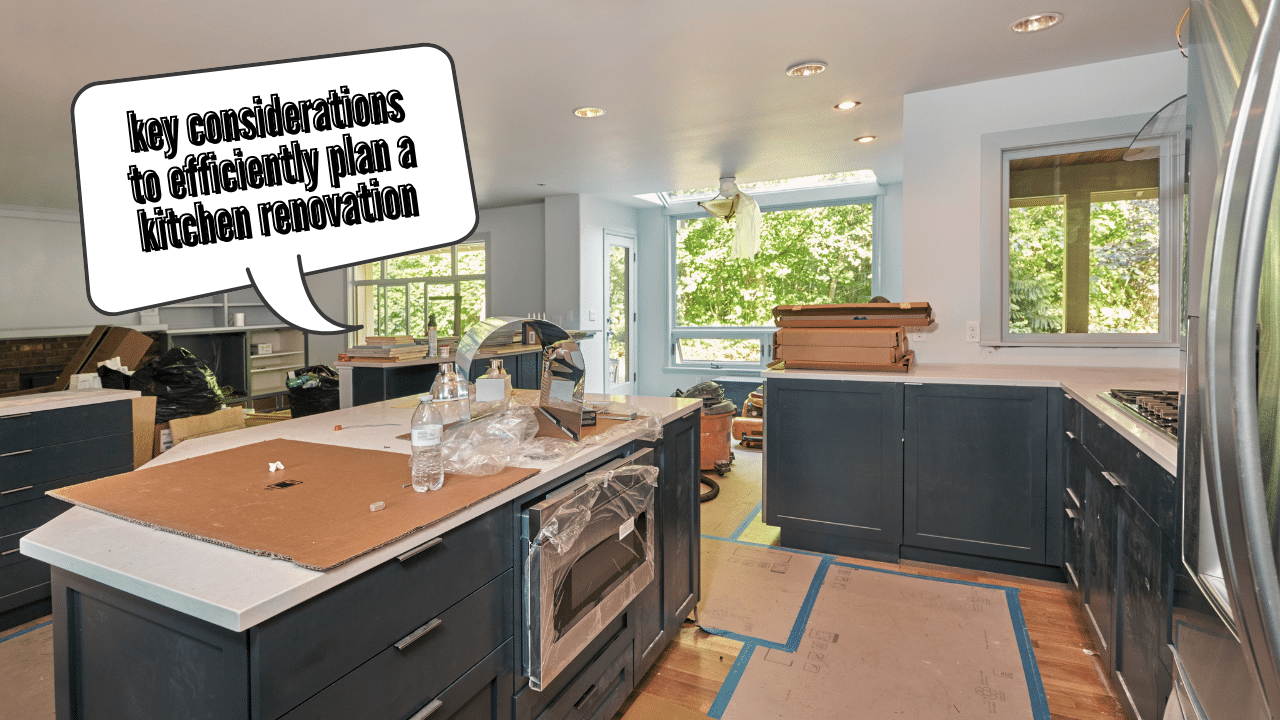We keep in touch with homeowners daily, and they often ask us similar questions like: "how much does it cost to renovate a kitchen?" and "what is the average cost of a standard kitchen renovation?".
But when it comes to remodeling a kitchen, no one size fits all. A good rule of thumb is that the average cost you see on online guides will still depend on several considerations. That said, we've compiled essential budget factors that can affect the cost of your kitchen renovation project to help you get a better gist of how much the total tab will be. (Related: Kitchen Remodeling: A Cost & Consumer Guide)
11 Factors that Affect Kitchen Remodel Costs

Here we go...
1. Kitchen Renovation Elements
Simply put, the cost to renovate a kitchen will depend on the individual elements you plan to include in the space. This consists of new appliances, furniture, flooring, and more. According to the National Kitchen & Bath Association, here's a quick breakdown of the different kitchen elements and the average costs they take from your overall budget.
Meanwhile, the rest of the budget (26%) can be allocated for the labor and professional design costs.
2. Home Value
If you're still setting a budget to cover kitchen remodeling costs, consider the current market value of your home. Experts recommend designating about 10 to 15% of the market value total on your kitchen renovation project.
Suppose your home is currently valued at $300,000. A good estimate is to spend anywhere between $30,000 to $45,000 to take your kitchen to the next level. If it's valued at $150,000, you might consider spending around $15,000 to $22,500.
3. Location
The location of your residence can also affect your total kitchen remodeling costs. Several states have a higher cost of living than others, so your project might be more expensive in a Los Angeles, California home than in Nashville, Tennessee.
It would be best to research the average costs in your location to form a better budget to cover all your kitchen renovation project needs. Or better yet, talk to local construction or design-build professionals to get a more accurate, in-depth pricing estimate.
4. Kitchen’s Existing Configuration vs. Ideal One
The cost to renovate a kitchen will depend on how you intend to use the space. So, if you’re looking into moving the location of the sinks and ovens or making changes to the existing layout– note that this will increase the overall project costs accordingly.
Any changes to the location of these kitchen items may require extra plumbing, wiring, and gas line work.
5. Labor Costs
The labor fees also affect the cost of renovating a kitchen. On average, this may consume up to 22% of your total budget. For this reason, we strongly advise working with a professional home design business to manage your kitchen redesign project. This allows you to save a lot more money, time, and effort if they will also handle the construction.
6. Flooring Type
The kitchen flooring material you choose will affect not only the total project costs but also the practicality and aesthetic appeal. Generally, designer tile, natural stone, and hardwood floors are more expensive than engineered wood, laminate, plain tile, or simulated stone floors. But if you choose inexpensive flooring options, it won't have a significant effect.
7. Kitchen Cabinets
The cost of your new kitchen renovation project can also be influenced by the type and number of new cabinets you choose. Kitchen cabinets have three primary categories: Stock, Semi-Custom, and Custom.
Additionally, numerous construction grades are available for stock, semi-custom, custom cabinets, and extra premium features like soft-close drawers and doors, adjustable door hinges, and unique interior storage possibilities. (Related: Cabinet Installation Cost & Consumer Guide)
8. Trim Work
Most cabinet installations and other kitchen components require some sort of "trim." Trims that are frequently used include chair rails, shoe molding, crown molding, trim around windows and doors, and decorative trim on walls and ceilings.
Simple trim work does not significantly affect costs. But expenses will go up a little because of the different designs, materials, and labor required for more intricate trims.
9. The Type and Size of Countertops Installed
The cost to renovate a kitchen can also be influenced by the countertop material you choose (plus the countertop space you need). Nowadays, a natural stone, such as marble or granite, is one of the most popular kitchen countertop materials. The price of natural stone varies depending on the quality and thickness you select and how well the grain matches the seams and their origin.
There is a 1:5 cost ratio between low-end, basic natural stone and high-end natural stone and quartz. It may cost much more if you choose an unusually pricey natural stone, like an imported kind. (Related: Concrete Countertop Cost And Consumer Guide)
10. Kitchen Appliances
Similar to cabinets, the cost of your new kitchen will be significantly influenced by the type and number of new appliances you include. Modern homes have a refrigerator/freezer, microwave, dishwasher, range with an oven, or a cooktop with one wall oven.
11. Lighting and Fixtures
Lastly, lighting may also influence the cost of renovating your kitchen– though it is not as significant. Standard and reasonably priced lights are undercabinet lightings and recessed ceiling lighting fixtures. Basic non-dimmable LED lighting is slightly more expensive than essential dimmable LED lighting.
If you add designer or custom-made fixtures like designer ceiling fittings, home automation-controlled lighting, and variable color temperature lighting, the project costs may only skyrocket.
How to Successfully Budget Your Kitchen Renovation Project
Here are some tips that can help you in your kitchen remodel without spending a hefty price.
Bottomline, finding a general estimate for the cost of a kitchen remodel can be challenging because there are so many different factors to consider. Ideally, work with a budget that aligns with your home needs, current situation, and design preferences.
